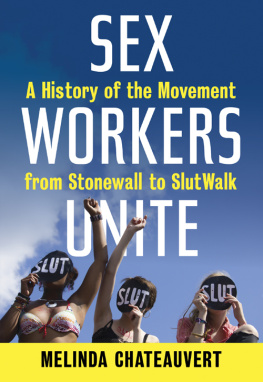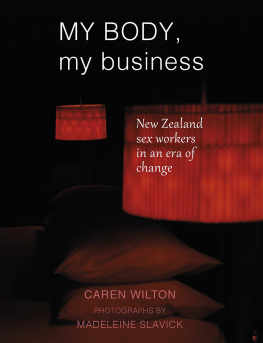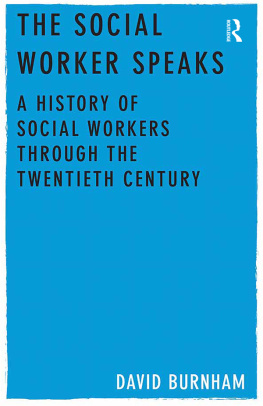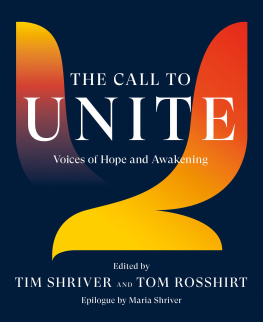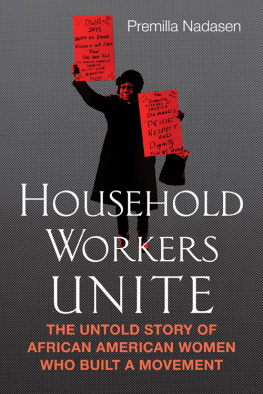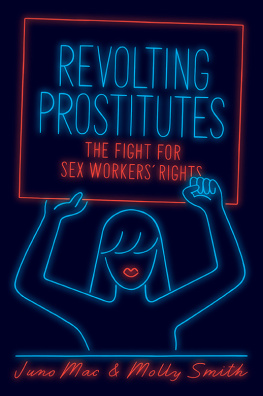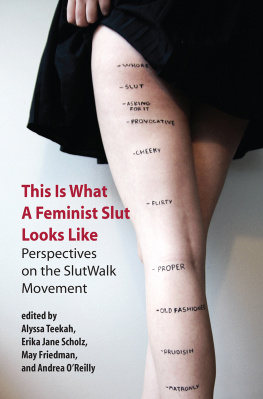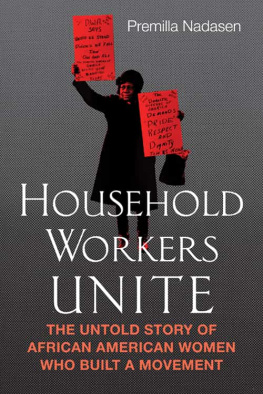
For
Gail, Gayle, Sandy, Maluda, Sunny, Linda, Chris,
Anna, Dawn, Chrissy, Colette, Candy, Jeri, Kathy,
the girls of GirlsGirlsGirls
Dont stop fighting, dont stop living, and
goddammit, dont stop having fun.
MARGO ST. JAMES

INTRODUCTION
SEX WORKERS ARE FIGHTERS . They arent young girls begging in a freezing Dickensian fog; they arent Pretty Women looking for Prince Charming; they arent victimized teenage runaways exploited by savage (read: black) pimps; they dont have golden hearts; and they arent crack hos neglecting their babies to find a fix. They arent American or Jamaican gigolos looking to fleece middle-aged women or gay hustlers cruising for sugar daddies. And some sex workers may look like these stereotypes, yet they are fighters too.
Sex workers have been fighting for their right to work, for respect and justice, for a very long time. It would be extraordinary if members of the oldest profession had never complained, had never organized, or had never fought back. They have a lot to fight. Many wonder, Why do they hate us? Reverend Howard Moody of New Yorks Judson Memorial Church heard a Times Square streetwalker complain about her confrontation with a passerby in the 1970s:
We aint doin nothin to them. Yesterday Im just standin on the corner, not doin nothin, and this bitch come by and says, Get off the street, you dirty slut. If she hadnt been so fast Id have kicked her ass. I wasnt hurtin her. Where does she get off, callin me names? You mean she aint never fucked for favors? We just tryin to make a livin like everybody else.
Moral judgments about prostitutes embolden people to throw stones and insults. Politicians pander to the womens vote by introducing legislation to punish sex workers and everyone near them. Police target street-based sex workers to show theyre cleaning up the city; FBI and immigration officials arrest female sex workers as trafficked, and claim their associates held them in sexual slavery. In the face of such disempowerment, its no wonder that sex workers fight. Their survival depends on it.
Sex workers must fight for their lives. Serial murderers and rapists target prostitutes, and police compound the violence with sloppy or scant investigations of their deaths. In 2001, Gary Leon Ridgway admitted to killing forty-nine street-based workers in the Green River area of Seattle because he knew they were vulnerable. For twenty years, police did not pay attention as his victims disappeared. Ridgway is only one of some five hundred serial murderers convicted since 1970 who have preyed on female sex workers and women perceived to be sex workers; more than three thousand women have died in the last four decades.
This pattern of violence, combined with police neglect, is why sex workers lobbied the US government for years to acknowledge that these crimes are human rights violations. In 2011, the Department of Justice acknowledged the pattern of crimes committed against persons in prostitution, but has been slow to provide law enforcement officials with best practice guidelines for handling victims in the sex trades with respect.
Sex workers are laborers who earn money to perform sexual services or who provide erotic entertainment to clients individually or collectively. Their participation in the sex industry may be the result of choice, circumstance, or coercion. Carol Leighthe Scarlot Harlotcoined the gender-neutral term sex work in 1978 to describe the many diverse occupations of the sex industry. Sex workers are escorts, exotic dancers, porn stars, peep-show workers, professional dominants, rent boys, phone-sex operators, strippers, webcam performers, erotic priestesses, prostitutes, and providers of a vast array of niche adult services. Additionally, the sex sector employs tens of thousands of service workerssecurity personnel, film and technical crews, and behind-the-scenes workerswho are not sex workers.
Reliable statistics on the number of people working in the sex industry at any given time are difficult to calculate because of the illegality of some occupations and the stigma associated with even legal forms of sex work. Most calculations are based on arrests, skewing estimates toward street-based populations, but failing to capture sex workers arrested on charges other than prostitution. In 1990, health researchers estimated that one in one hundred US women had done some form of sex work during her lifetime. Perhaps the public education campaign of St. James Infirmary says it best: Someone you know is a sex worker.
Many occupations in the US sex industry are legal, and the duties, skills, and responsibilities required to perform these jobs are described in international trade agreements and the Occupational Outlook Handbook, a federal guidebook for job seekers. Employment in legal commercial sex businesses, including the pornography industry, may account for half of all sex workers today. In California, there are over five hundred escort companies providing all other personal services in the states Economic Development Department database. Because many are escorts and exotic dancers by choice and may have college degrees and possess other forms of human capital and privilege, many consider these workers the most empowered. Nonetheless, they too have reason to fear harassment and discrimination because of the work they do.
Escorts are paid for spending time with clients as dates, as girlfriends or boyfriends, not for sexual services per se. Out of public view, independent sex workers are less likely to be arrested, in part because they tend to heavily screen prospective customers. The occasional newspaper headline about a high-profile bust, whether of New York Governor Elliot Spitzer or Deborah Jean Palfrey, The DC Madam, does more to restore the reputation of a scandal-rife police department than to shut down the escort industry. When public pressure to do something about crime mounts, police sweep up street-based workers. Neighborhood residents take false comfort in the belief that empty sidewalks discourage crime.
Some people engage in transactional sex casually or temporarily to supplement low-wage work, to cover extraordinary or emergency expenses, or to survive until the next meager social security check or food stamps arrive. Girls do what they have to do to survive, as do homeless boys, undocumented immigrants, transgender people of color, and other marginalized and social undesirables. They hustle, using sexthe one form of labor capital they possessto obtain food, shelter, clothing, medicine, physical protection, and other necessities. Such trades are survival strategies for a population shut out of other forms of work, in a nation that does not affirm a human right to shelter, food, or health care.
Sex workers are fierce fighters because their jobs demand perspicacity, persistence, and a kind of emotional ruthlessness in order to succeed. These skills have also made them canny political activists, contrary to the stereotype of disempowered victims in need of moral rescue. Sex Workers Unite! tells stories about sex workers who have fought for dignity and human rights from the 1960s to today, documenting a global movement for self-determination that is as multifaceted as the sex industry and as diverse as human sexuality.
No bad women, just bad laws captures the movements long-standing demand to abolish laws criminalizing erotic services and sexual labor. There are dozens of reasons for decriminalization, and sex workers dont all agree whether other laws prohibiting street solicitation, pandering, pimping, brothel-keeping, and moving across state borders should be repealed. Yet, based on the experiences of sex workers in other countries, US activists are skeptical that government regulation of the industry will enhance their rights as workers or as citizens.

